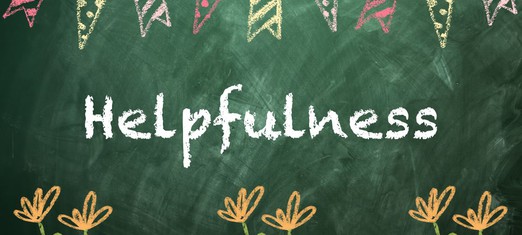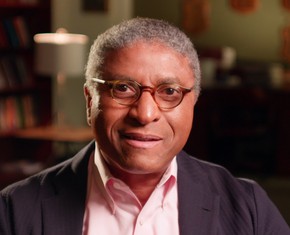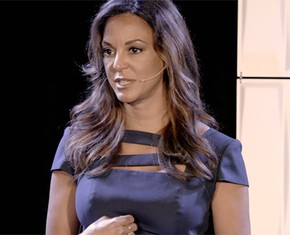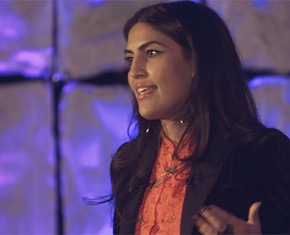Just for a moment, remember the last time you selflessly helped someone else, and reflect back on how it made you feel afterwards. Isn’t it a wonderful feeling? Wouldn’t you like to feel that way more often?
A simple act of helpfulness – being of service to others – can be a highly rewarding one, and can even lead over time to the habit of becoming a consistently helpful person, one who always looks for ways to assist and support others.
RELATED: The Virtues Basket: How to Nurture a Spirit of Service
That’s what love feels like when it’s translated into action.
Helpfulness can also be about aiding someone with a task they cannot do on their own. When we’re helpful, we can do things that make a difference in the world – for example, being part of a service project in our community.
We need to be helpful to ourselves, as well. Practicing helpfulness brings mutual cooperation, happiness, and trust. We practice helpfulness by looking for opportunities to serve others – our family, friends, and community.
Having a helpful attitude can start within a family, by looking for ways to help around the house. We can always ask our family members if we can help them with anything. For instance, we can see if our younger siblings need any assistance cleaning up an accident, or washing the dishes. Also, parents can practice helpfulness by being a role model to their children at home. Parents can look for ways to help one another on different occasions showing how much they care for one another. Children learn by observing and practicing the right behaviors alongside their parents. As parents, our actions and words must match, because children mirror our behavior rather than what we say.
We all need help – to meet our needs, or to get things done, or for the tasks we can’t do on our own. Helpfulness is a necessary characteristic one must acquire, because without it there would be no mutual cooperation, and no trust. If we don’t have a helpful attitude, people won’t be able to rely on us – or want to be around us.
Some might believe helpfulness is not that important – that we can hire someone to do what we need. However, if that person does not have a helpful attitude, she or he would perhaps not care to do their job very well. Thus, we may even end up wasting our time, energy, and money. Also, depending on the situation that person can damage our reputation as well.
However, it’s important not to confuse helping others with pleasing them. Developing the inner virtue of helpfulness does not mean that we always give people what they want, but rather what they need. When someone asks for our help with something, it is important to decide for ourselves if what is being asked of us is really good for that person – or is it perhaps more helpful not to do it?
Sometimes helpfulness simply means being there for others on an emotional level. If we notice our friend is sad, it is helpful to actively listen and empathize with them, or even ask if they need a hug.
We often hear how important it is to help others, but we might not realize that helpfulness applies to ourselves, as well. We can be helpful to ourselves by making sure to have what we need for both our physical and mental health. We can help ourselves by healthy eating, daily exercise, meditation and prayer, and constantly learning new skills.
When we feel helpless, we can ask God to help and guide us – but prayers by themselves are not enough, we need to also make the right decisions and act upon them, then God will help us in our endeavor. These five steps of prayer, reportedly suggested to a Baha’i named Ruth Moffett by the Guardian of the Baha’i Faith, Shoghi Effendi, can help everyone find and act on the solutions to life’s problems:
1st Step: Pray and meditate about it. Use the prayers of the Manifestations as they have the greatest power. Then remain in the silence of contemplation for a few minutes.
2nd Step: Arrive at a decision and hold this. This decision is usually born during contemplation. It may seem almost impossible of an accomplishment but if it seems to be an answer to a prayer or a way of solving the problem, then immediately take the next step.
3rd Step: Have determination to carry the decision through. Many fail here. The decision, budding into determination, is blighted and instead becomes a wish or a vague longing. When determination is born, immediately take the next step.
4th Step: Have faith and confidence that the power will flow through you, the right way will appear, the door will open, the right thought, the right message, the right principle, or the right book will be given to you. Have confidence and the right thing will come to your need. Then, as you rise from prayer, take at once the 5th step.
5th Step: Act as though it had all been answered. Then act with tireless, ceaseless energy. And as you act, you, yourself, will become a magnet, which will attract more power to your being, until you become an unobstructed channel for the Divine power to flow through you.
Many pray but do not remain for the last half of the first step. Some who meditate arrive at a decision, but fail to hold it. Few have the determination to carry the decision through, still fewer have the confidence that the right thing will come to their need. But how many remember to act as though it had all been answered? How true are these words? ’Greater than the prayer is the spirit in which it is uttered? and greater than the way it is uttered is the spirit in which it is carried out.’
Baha’u’llah, the prophet and founder of the Baha’i Faith, wrote that “all men have been created to carry forward an ever-advancing civilization.” When we come together to help one another great things can be accomplished for humanity. Moreover, being involved in community service projects can help us with our personal development as well as the growth of our community. Lastly, the Baha’i teachings tell us that part of how we worship God is through service, and by helping make our world a better place for all.
This Virtues Basket video about helpfulness teaches us what helpfulness means, why we practice it, and how to make it a daily part of every life.
Setareh Samandari Zargarpour has always been an artist at heart, after a 20-year career in Banking as Branch Manager for Wells Fargo and Chase she transitioned to working in Film. She had finished her Master of Arts in Political Science from CSUN and utilized it...
READ MORE
















Comments
Sign in or create an account
Continue with Googleor